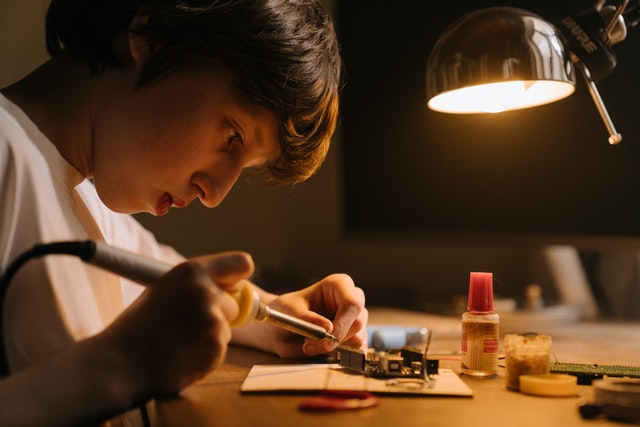

Neurodivergent is a buzz word that’s taken off in the past decade. The term applies to a broad spectrum of people who are, for whatever reason, not normal. Those who ‘suffer’ from ADD, ADHD, OCD, dyslexia, dyscalculia, etc. are all on the list.
For those who don’t know or haven’t guessed, I’m on the autistic spectrum and also have mild dyslexia, dyscalculia, and severe ADHD. Most of my life, I knew I was different, but wasn’t exactly sure why. I was always an outsider and struggled to pick up social cues.
***Most of my grade school teachers are still the fodder of nightmares.
I don’t recall my third grade classroom, only what the hall looked like.
Teachers punished me because I did things differently than the other students. I was a whiz at math, could solve highly complex problems in my head, only to fail the test because I transpose numbers. Or, I showed my work, but solved the problem differently than the way the teacher wanted.


It seemed no matter what I did, it was wrong. I talked too much, moved too much, worked too quickly, asked too many questions, and my obsessive need for order caused more than its fair share of problems.
In Kindergarten, my teacher broke all my Crayons in half and tossed them all together in a bucket.
I have still not gotten over the hurt.
Neurodivergent vs. Neurtotypical
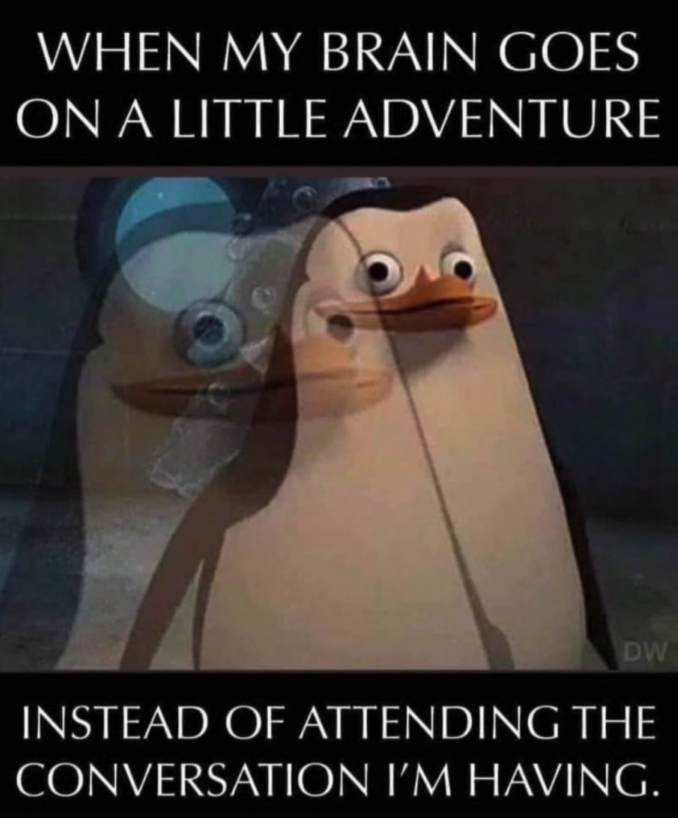

Obviously, to be considered neurodivergent there has to be a counterpart, which includes those considered neurotypical.
Neurotypical describes individuals who display typical intellectual and cognitive development. Since human beings are social animals who band together for survival, a neurotypical is generally adept at navigating complex social situations, picking up on subtle social cues, creating friendships and forming lasting bonds.
They are more aware of what could be socially off-putting. Apparently, talking about serial killers or the Black Death for an hour straight at a cocktail party is not normal.
Who knew?
Unlike neurodivergents, neurotypicals aquire verbal, language, social, and problem solving skills along a fairly standard timeline and meet generalized milestones for development. They can also function well in a regulated environment without becoming distracted or overloaded by stimuli.
And, for the record, there is overlap. Some people can be mixture of both.
Neurodivergents & the Social Disconnect
GREAT at seeing patterns…in everything but a conversation *face palm*
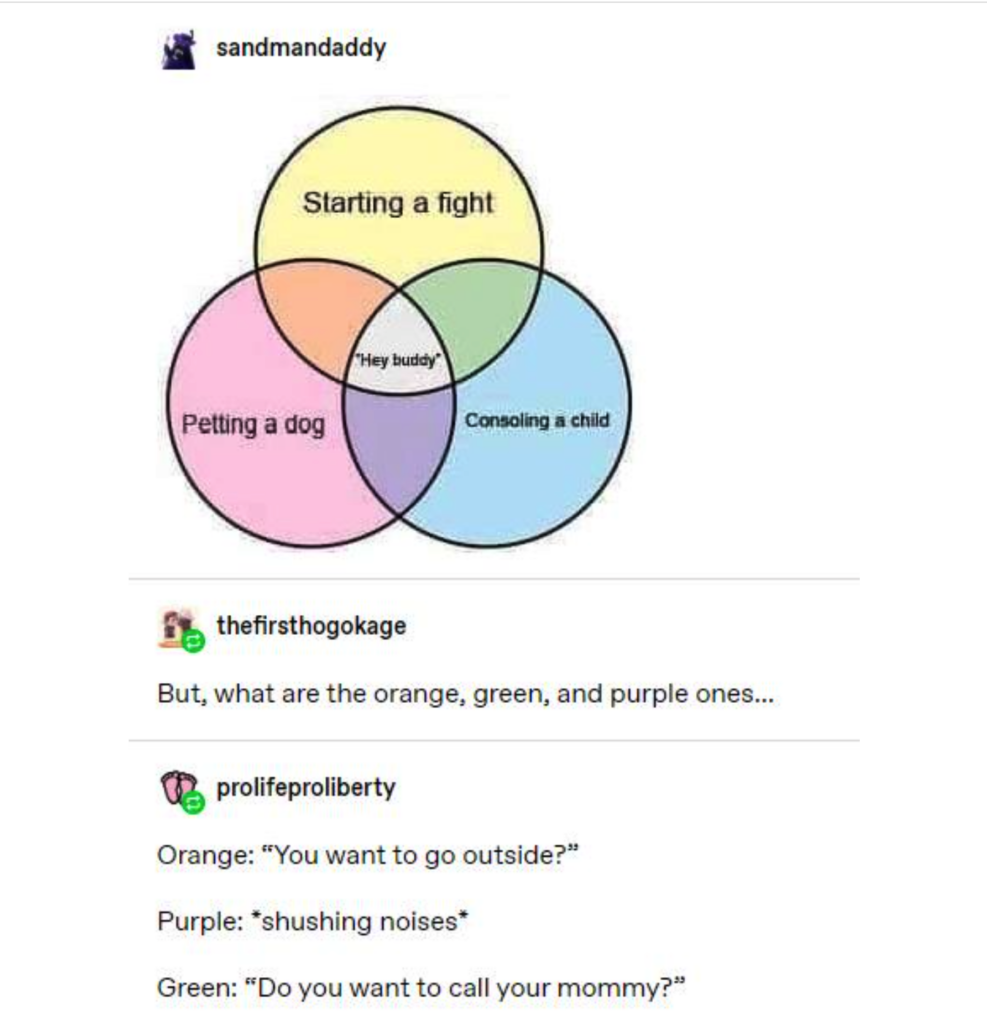

As I’ve mentioned before, I am not a clinical psychologist, I only play one on the internet. Early life, for me, was challenging at best, but often pretty miserable. Not to tell a sob story but I didn’t like playing with other kids when I could be copying the encyclopedia or playing with my chemistry set.
Sorry about the chlorine gas.
In all honesty, I didn’t UNDERSTAND other kids. I had no concept WHY they wouldn’t be interested in organic chemistry or political science.
At first, I retreated totally inwards, reading, drawing, learning clarinet. Eventually, after binging enough standup comedy, I ‘learned’ how to be funny. I could ‘mimic’ being sociable, and to an extent I still do.
Back when I was growing up, I wasn’t neurodivergent, I was weird, a freak, a nerd, or (to most adults) a problem child. The handful of teachers who ‘got me’? OMG what a blessing!


I didn’t understand that one wasn’t supposed to be honest all the time. So one time, in 6th grade, when the same four boys disrupted the social studies class every single day for almost a month. And every single day the teacher made everyone put their heads on their desks even though we’d done nothing wrong.
I became more than a little annoyed.
Eventually, I asked the teacher why she couldn’t just send the four boys out of the room. Her job was to teach us about the Roman Empire, not read romance novels.
Yep, Mom got called to school over that one.
Overstimulation
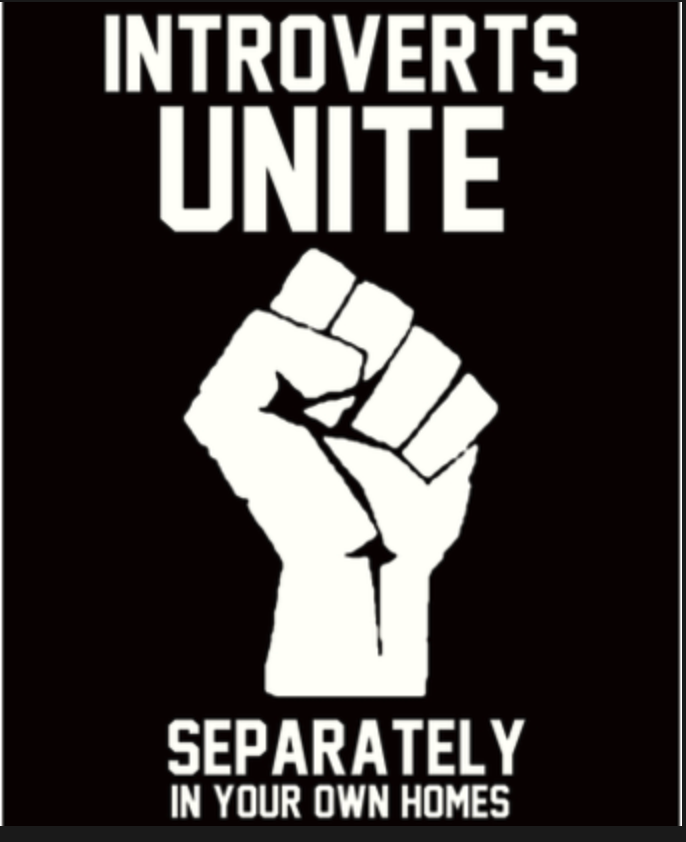

Those of us who are neurodivergent are frequently viewed as ‘problematic.’ For instance, being on the autistic spectrum, I cannot tolerate certain textures in food or fabric. I am VERY picky about the clothes and jewelry I wear. Turtlenecks and chunky jewelry either give me anxiety or a headache.
I’ve recently struggled with finding a church to attend. No shade on the new style of churches. I know many people love the praise music and the show. But for me?
Dark rooms packed with people combined with booming music and flashing lights is a nightmare. Yet, when I say something about the loud noise and bright lights it falls on deaf ears because everyone else enjoys it.
This is why I struggled in school. The ‘noise’ of everything was simply too much, which was why I’d tap my foot or pen or move around…and eventually be planted in the hall.
Even now, as I am writing this, I’m wearing noise-canceling headphones.
When I worked in Corporate America, my admin and I nearly came to blows over the lights in MY office. I worked on a laptop and the natural light was fine. Florescent lights are too bright and flutter and give me headaches.
Invariably, the admin would lean in my office while I was working and turn on my overhead lights.
ACK!
Stimming & Neurodivergent
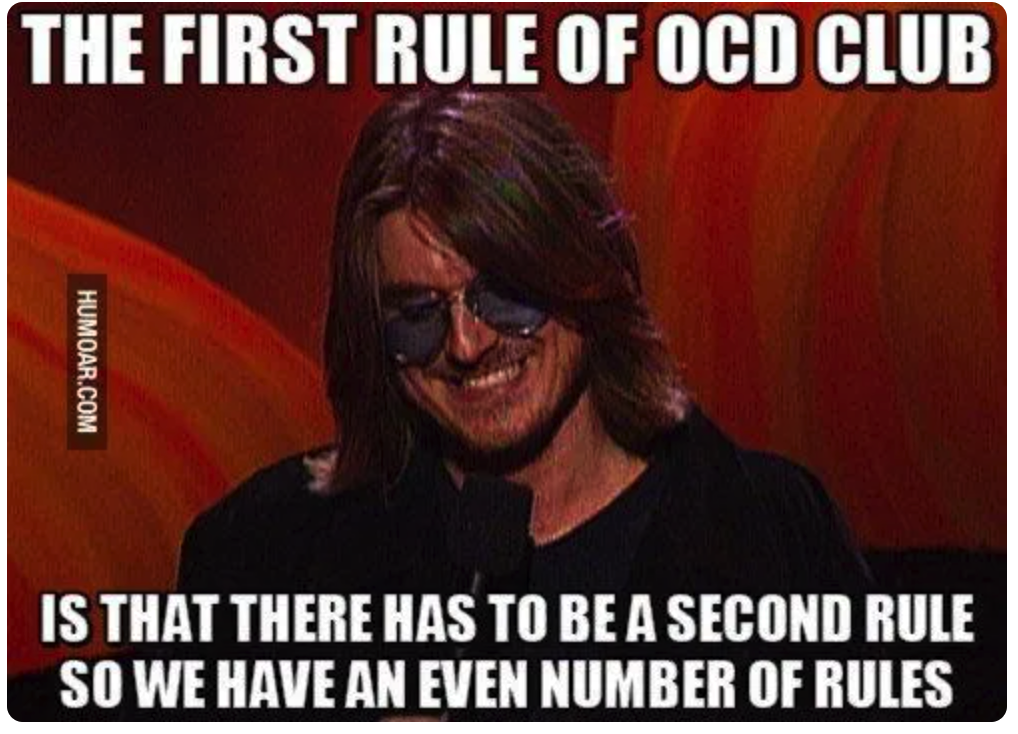

Stimming is common for everyone, but might be more pronounced with those who are neurodivergent. Biting nails, twirling hair, tapping a pencil, etc. are all forms of stimming.
Stimming is a way of dispersing extra energy that builds up as anxiety (obviously that anxiety will be more acute in the neurodivergent). One of the reasons experts believe that autism went underdiagnosed in females is that our stimming behaviors and coping mechanisms are far more socially acceptable thus go unnoticed.
Coloring for hours, rearranging dolls all day, collecting thousands of stickers or unicorns, writing stories, practicing a dance move over and over are simply ‘girl behaviors,’ thus fly under the radar.


I was in ballet for almost ten years. My mom deserves an award for letting me dance through the house all day every day for HOURS. To this day the only reason I think she doesn’t hate me for playing Tchaikvosky 600,000 times was because she’s also neurodivergent.
As an adult, I clean and listen to books and podcasts. I find it very difficult to sit and just read. When I used to attend church, I worked church security because I could walk around and look for any potential problems while also listening to the sermon.
With ADHD, I have to be doing multiple activities to pay attention. One that is a ‘no-brainer’ (cleaning, crochet, gardening) and the other that requires focus (listening to a lecture, a sermon, a book, talking on the phone).
I also live my life by lists, times and routines. Interfere with any of these and you’ll have me climbing a wall. Yes, I can be flexible…if I can plan it ahead of time.
Neurodivergent: Disabled or Differently Abled?
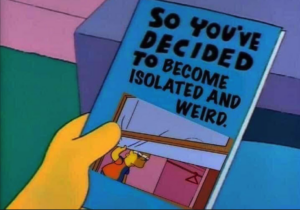

***Note: I KNOW and very much appreciate there are severe and even debilitating forms of autism, OCD, etc. but that isn’t what I am talking about today.
Thus, for the record, I am speaking for me as a neurodivergent person in a normie world. I get REALLY irritated when some suggest I have a disability. I believe I simply have a different operating system. Sort of like being a Mac when 93% of the world is Windows.
If being neurodivergent is a disability, then being left-handed should be as well, since all lefties know what it is like trying to function in a world where everything from notebooks and desks to cars and combines are designed for right-handed people. Lefties even have higher rates of accidents and, consequently, lower life-expectancies.
Did y’all know that 25% of CEOs and as much as 35% of entrepreneurs are actually dyslexic? Because they struggle with reading, they are more apt to commit information to memory, are better at delegating, and are excellent at persevering.
My son (A.K.A. Spawn) is neurodivergent and, at age 12, he studies three languages (German, Spanish, Russian) every day ‘for fun.’ He knows so much about every war from ancient Greece to Desert Storm, he’s like a walking Wikipedia.
When other kids his age are watching cartoons, he’s studying forensic accounting to understand how organized crime launders/hides money.
His favorite topic of ALL…*hangs head* vexillology. My son IS Sheldon.
Neurodivergent in Fiction
Whether we realize it or not, neurodivergent people are REALLY common in fiction, as noted above. Virtually every character on the wildly successful series The Big Bang Theory is neurodivergent, albeit in different ways and to different degrees.
Obviously neurodivergent characters will pop up more commonly in some genres than others, but characters who see and process the world differently are valuable in life AND in story.
Some favorite examples.
Thriller: The Accountant is about a severely autistic man who’s channeled his unique skillsets to become the ‘money guy’ for organized crime around the globe.
Science Fiction: Stranger Things is packed full of characters who are the nerds, freaks and rejects…who are just the type of people necessary to save the world.
Drama: As Good as It Gets Melvin Udall is a famous novelist who is a raging homophobe, misogynist, and misanthrope who suffers from crippling OCD. He ends up the very unlikely hero when his homosexual neighbor is the victim of a hate crime.
Crime Procedural: With Monk, one police department’s debilitating disorder is private detective’s superpower. Abby, genius forensic scientist and pathologist on NCIS, is at the minimum VERY ADHD. Dr. Laura Isles in Rizolli & Isles, is likely on the autistic spectrum though not to the degree as forensic anthropologist Dr. Temperence Brennan in Bones.
Nerds, Freaks, March to Their Own Kazoo


Our culture has used neurodivergent characters as tropes since before anyone knew what it was. We are those who are different, outsiders, freaks. Most of my growing up years were tough because being a nerd was a fate worse than death according to pop culture.
In a way, The Big Bang Theory was a mixed blessing for me. I read Dune, LOTR, played Dungeons & Dragons, was in debate, the chess club, a mathlete and collected all things Star Trek back when I got beat up for loving stuff…
…that’s now cool *rolling eyes*
No one wanted to talk to me unless they needed to copy my homework or wanted help on a paper. I remember longing to be normal, to fit in, to be like everyone else. Now? I fly my freak flag high. When it comes to my son, I tell him…
Honey, ‘normal’ is a setting on the dryer.
MOMISM
And, when we look to all the best movies, who are the heroes we love? Goonies, Ghostbusters, Back to the Future, Weird Science, and like every super hero movie EVER?
Neurodivergent People Have Problems
Just by the nature of our brains and sensory systems working differently, we DO have problems. Personally, I can’t be in (as in part of) really large crowds, around loud noises and I need time to be quiet. I miss social cues, can hijack conversations, talk too loudly and take things WAY too literally.
When I was a kid, there was an antacid commercial that practically gave me apoplexy.
Ad: How do you spell relief? R-O-L-A-I-D-S
4-Year-Old Me: *screaming at television* No, you dummies! It’s R-E-L-I-E-F!
Yeah, still working on nuance.
Sometimes the problems simply stem from, as I mentioned earlier, having a Mac OS in a Windows OS world. But, other neurodivergent people have struggles all along the spectrum of severity. Some of us do a fairly decent job of ‘fitting in’ whereas others probably never will, and that is okay too.
While fitting in can be overrated, I do admit there are times I wish I were normal… even though I have ZERO idea what that even would feel like.
Neurodivergent and Conflict


The beating heart of all fiction is conflict. Without conflict, we are left with ‘stuff happening.’ Since every scene requires conflict, more often than not, conflict will come from allies.
Think about Rizzoli and Isles. They’ll have a scene where clearly the victim has been shot but when Detective Rizzoli says the victim died by gunshot, Dr. Laura Isles chastises her. They know nothing until the body is on the table. She refuses to even say there is blood, only a ‘reddish substance.’ This is maddening for Rizzoli.
Abby from NCIS is like trying to get a fruit bat hopped up on cocaine and Pixi Stix to focus on one topic.
Dr. Sheldon Cooper has zero social skills and no sense that anyone has needs other than him. His girlfriend is Dr. Amy Farrah Fowler, a Harvard graduate and a neurobiologist.
She is also, obviously neurodivergent not only because of her field and interests, but it would take a neurodivergent person to be attracted to someone like Sheldon and have the patience and the grace to try to have a romantic relationship.
My favorite? When Amy builds a Tardis around the door to lure Sheldon into the bedroom (for intimacy) but he just keeps running in and out of the bedroom trying to escape Daleks and searching for his sonic screwdriver.
Normal isn’t Always What is Needed
Neurodivergent characters can obviously be stars of the story, but they can also make fabulous allies. In Buffy the Vampire Slayer, Buffy is only different because she’s chosen and has powers to hunt and kill creatures the Hellmouth is spawning underneath Sunnydale.
While Buffy is a neurotypical who excels in the social realm (cheerleader) and is popular, she can’t fight evil without her less ‘normal’ allies like Giles, Xander and Willow.
This week I’m teaching a class on how to build characters that are strong enough to endure a series (Use New15 for $15 off). Neurodivergent characters are a great addition. We’ve always seen them, just maybe thought of them as the nerd, the brain, the geek, the computer whiz, the conspiracy theorist, the outcast, etc.
Neurodivergent characters might notice patterns the ‘normal world’ misses. They solve problems in unique ways or have skillsets that ‘popular’ kids wouldn’t have. Think of Dustin in Stranger Things who somehow always has a screwdriver, flashlights, batteries, and compasses. Dustin is the brains and Steve is the brawn.
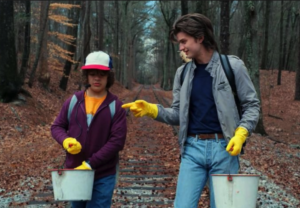

Also think how much FUN it is to see a neurotypical and a neurodivergent team up. One of my favorite character threads in Stranger Things is how super popular jock Steve Harrington becomes best friends with shameless mega-nerd Dustin Henderson.
Put these two together and yes, there is conflict. But since each has skills the other doesn’t possess but needs they make a great team and, eventually learn from each other and grow as people.
***For me, Eleven—while interesting and necessary—comparably isn’t nearly as interesting as other characters in the series.
In the end…
As neuroscience is understanding more and more about how the human brain works, we are realizing that people who were once labeled as freaks, weirdos, nerds, lazy, difficult, etc. just are different. And there are a LOT of us. More by the day since the digital revolution is really a boon for us weirdos.
We’ll talk more about different types of characters in the future, but today hopefully shines a light on a character that you probably see every day (many of you in the mirror) and how they can really make wonderful additions to your fiction.
What Are Your Thoughts?
Do any of you guys struggle with being neurodivergent? I have a personal theory that many writers are neurodivergent and why we write people so well is because we spend so much time studying them. What are your thoughts on that?
Did you ever appreciate just how many neurodivergent characters there are in fiction, and how they can make the neurotypical characters shine even brighter?
When I mentioned the teacher breaking all my Crayons, did anyone have a VISCERAL reaction? What are some of the ‘things’ that bother you but don’t seem to affect regular people? Do you ever wish you were normal?
For the ‘normal’ people out there reading this blog (all five of you), do your weird friends make a little more sense?
I LOVE HEARING FROM YOU!
I will pick a winner once a month and it will be a critique of the first 20 pages of your novel, or your query letter, or your synopsis (5 pages or less).
We have been doing a lot of traveling because my FIL has serious health issues so I will announce May’s winner next post. I know I promised that last time, but we had to go to Arkansas AGAIN. Apologies.
CLASSES!
***All classes come with a FREE recording
COMING UP!
The Art of Character: Writing Characters for a SERIES
Thursday, June 16th 7:00-10:00 P.M. NYC Time
For more information, SIGN UP HERE. Use New15 for $15 off
Practice Your Pitch: Master the Log-Line
Thursday, June 23rd, 7:00-9:00 P.M. NYC Time. This is a TWO-HOUR INTERACTIVE WORKSHOP!
For more information, SIGN UP HERE.
Blogging for Authors
Thursday, July 14th, 7:00-10:00 P.M. NYC Time. 2022 SIGN UP HERE and Use New25 for $25 off
